Roommate Conflict: Refusing to Vacate Shared Home for Birthday Sleepover
A 21-year-old college student finds himself at odds with his roommate over an unusual request. Sharing a house with two couples, he learns that one roommate plans to host a 20th birthday party with approximately 20 guests. The twist: she asks him and another male roommate to vacate the house for the night, citing that some of her female friends feel uncomfortable sleeping in the same house as unfamiliar men. Despite the house’s ample size and separate bedrooms, the request leaves him questioning its reasonableness.
The situation underscores the complexities of shared living arrangements, especially when personal comfort levels and communal rights intersect. While the roommate’s desire to accommodate her guests is understandable, the expectation for co-tenants to leave their own home raises questions about boundaries, rights, and mutual respect in shared housing.
Sharing a house in college can be a rollercoaster because it’s equal parts fun, chaotic, and occasionally baffling

The author lived in a shared house with four others, and one of them wanted to throw a party for her 20th birthday
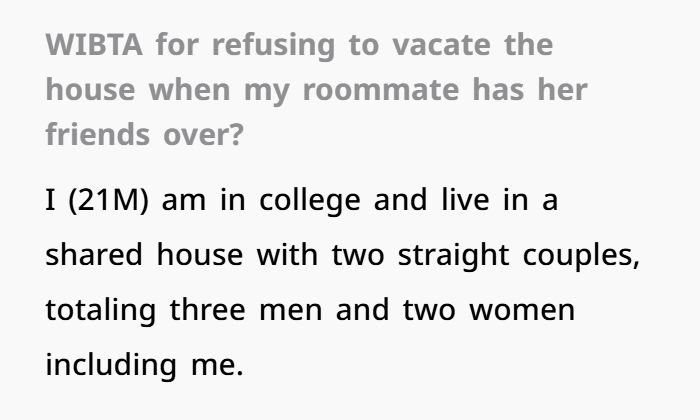
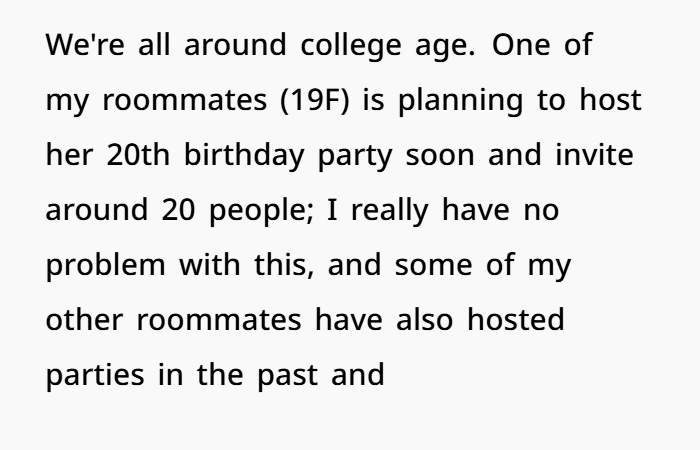

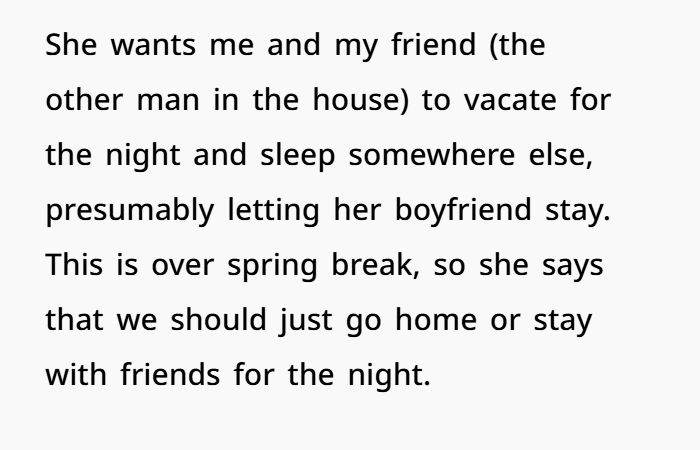
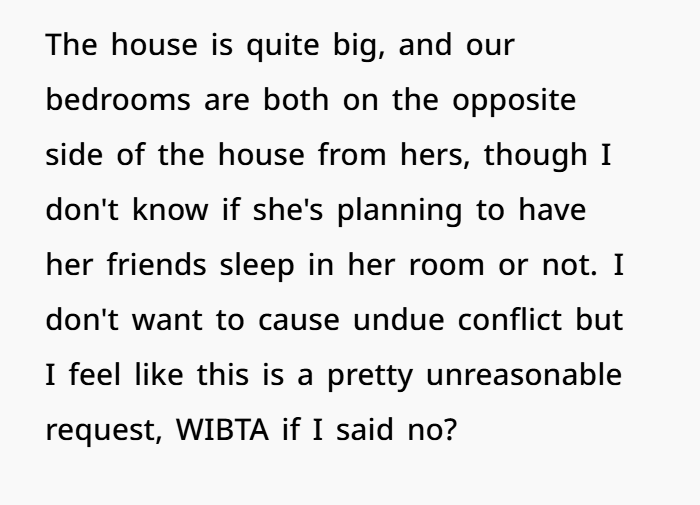
Understanding Tenant Rights and Roommate Boundaries in Shared Housing

Navigating shared living arrangements, especially during college years, can be complex. The situation where a roommate requests others to vacate their own home to accommodate guests raises significant questions about tenant rights, personal boundaries, and communal living etiquette.
Legal Rights of Co-Tenants
In shared housing, each tenant typically holds equal rights to the property, especially if all names are on the lease. This means no single tenant can unilaterally dictate terms that affect others’ rights to access and use the property. According to Justia, co-tenants cannot evict each other or restrict access without mutual agreement or legal intervention .
Even in cases where a roommate’s guests feel uncomfortable, it doesn’t grant the host the authority to ask other tenants to leave their own home. Such requests, while perhaps well-intentioned, can infringe upon the rights of other tenants and disrupt the balance of shared living arrangements.
Guest Policies and Lease Agreements
Most lease agreements outline specific terms regarding guests, including duration of stay and the number of visitors allowed. These clauses are designed to prevent situations where guests overstay and effectively become unauthorized tenants, which can have legal and financial implications for all parties involved .
It’s essential for roommates to refer to their lease agreements to understand the boundaries set for guest accommodations. If the lease permits guests under certain conditions, then all tenants should adhere to these terms, ensuring that no one’s rights are compromised.

Communication and Conflict Resolution
Open and respectful communication is vital in resolving roommate disputes. If a roommate expresses discomfort due to guests, it’s crucial to discuss concerns collectively and seek a compromise that respects everyone’s rights and comfort levels. This might involve setting clear guidelines for guest visits, such as designated areas for guests, quiet hours, or advance notice for overnight stays.
In situations where conflicts persist, mediation services offered by universities or local tenant associations can provide neutral ground for discussion and resolution. These services aim to facilitate understanding and agreement among roommates, preserving the harmony of shared living spaces.
Netizens insisted that it was the author’s place as much a it was the roommate’s, and that he didn’t have to leave to make her friends comfortable
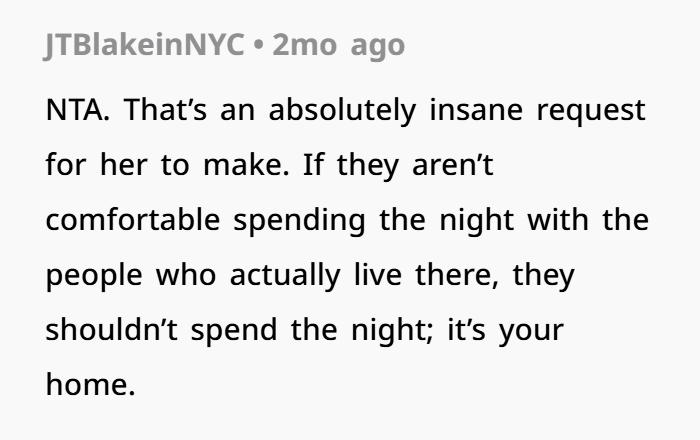
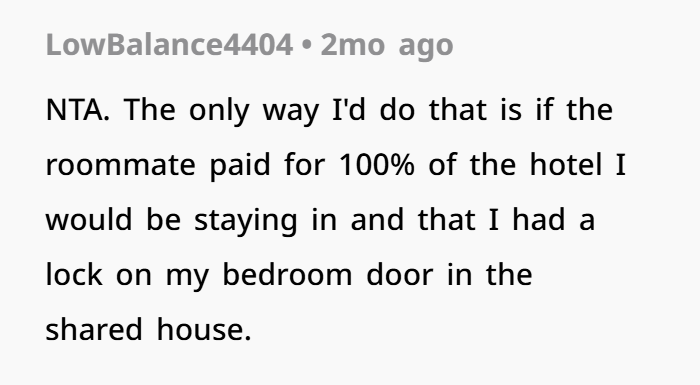
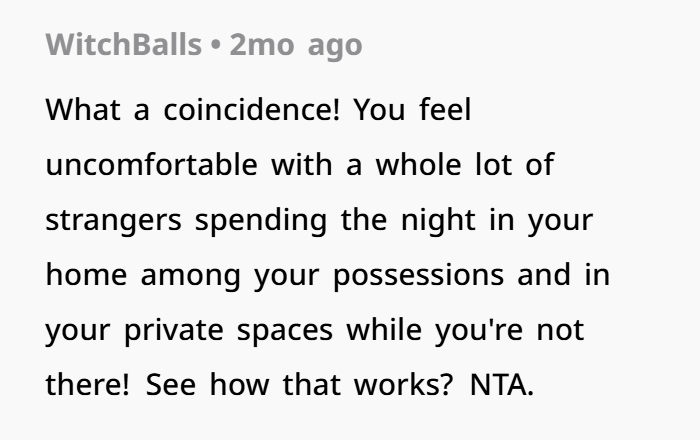
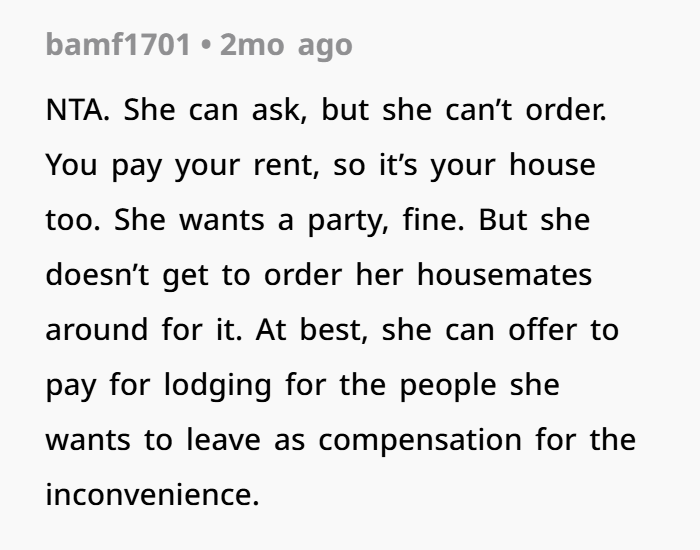
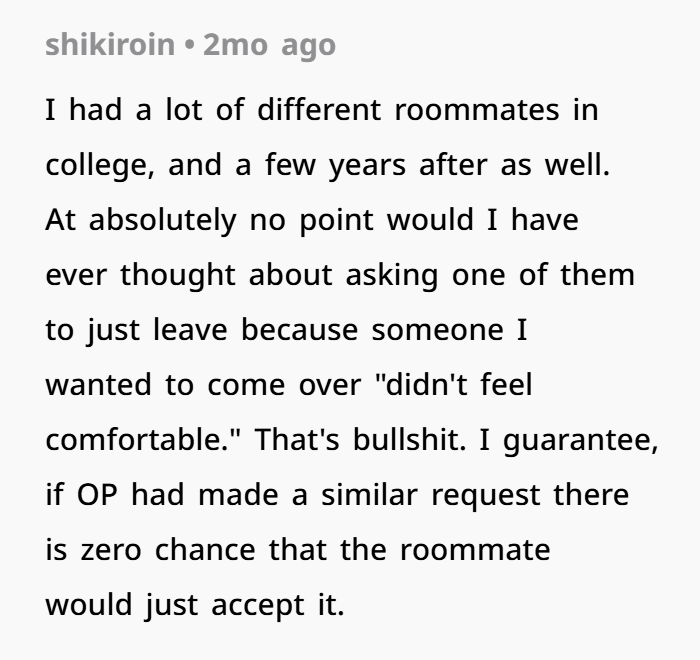
In shared housing, all tenants have equal rights to access and enjoy their home. While accommodating guests is a common aspect of communal living, it should not come at the expense of other tenants’ rights and comfort. Requests for roommates to vacate their own home to accommodate guests are generally unreasonable and legally unsupported. Open communication, mutual respect, and adherence to lease agreements are key to navigating such situations effectively.

